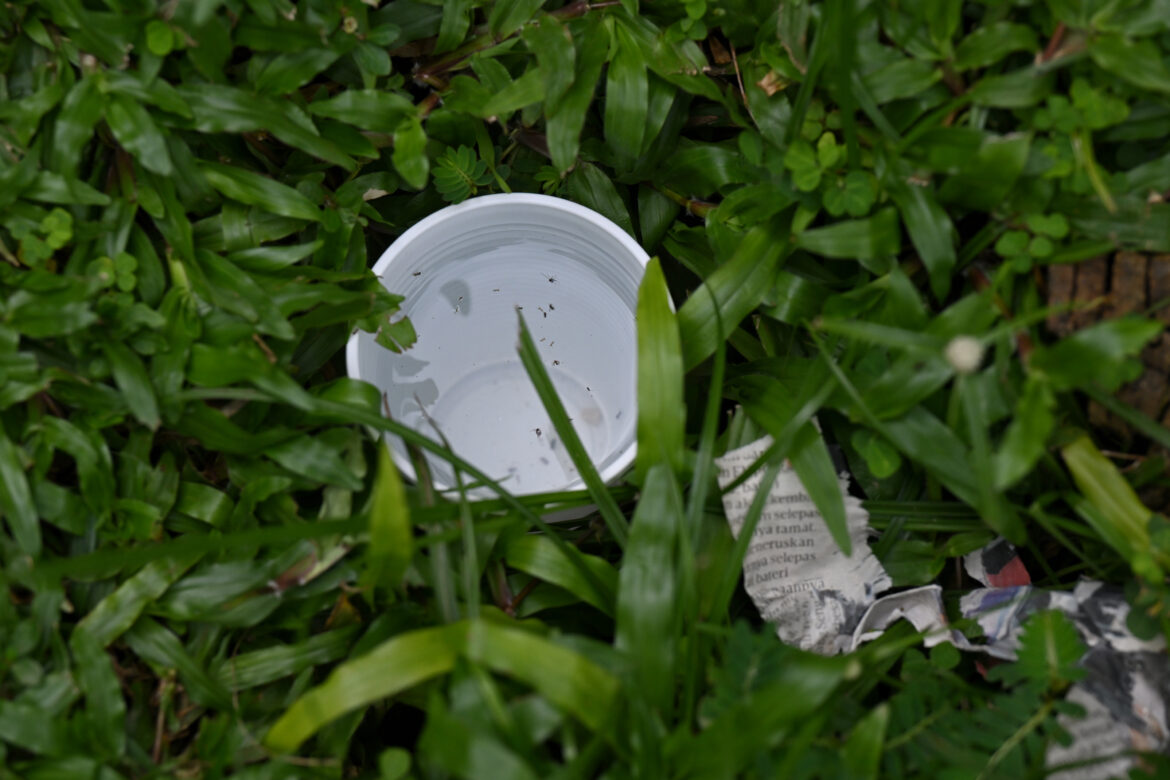This year, there are already more than 2,600 dengue cases reported by the National Environment Agency (NEA), with 2,025 of them occurring in January 2024 alone. This alarming resurgence of dengue fever is largely attributed to an increase in mosquito breeding grounds in both domestic and industrial settings.
Breeding sites at homes are frequently found in containers with deep concave interiors, such as flower pots, pails and vases. Even at communal areas, there have been sightings forming in drains and discarded containers. Clusters have also been discovered at construction sites in ground puddles and on canvas sheets.
“Everyone in the community must do their part to prevent mosquito breeding. I believe our collective efforts to fight dengue can turn the situation around,” writes Miss Grace Fu, MP for Yuhua SMC, in a Facebook post on 19 February 2024.
It is imperative that residents report any such sightings to Jurong-Clementi Town Council (JRTC) immediately via OneService, or to NEA at 1800-2255-632/Contact_NEA@nea.gov.sg.
The health implications of the dengue virus
Transmitted via the bite of an Aedes mosquito, this fatal virus carries an incubation period spanning up to seven days in a person, after which afflicted individuals may experience the following symptoms (not in order):
- Fever
- Severe headache with pain behind the eyes
- Joint and muscle pain
- Nausea and vomiting
- Rashes
- Mild bleeding
Seek immediate medical attention if you suspect you or your loved ones of being infected with dengue fever.
JRTC’s dengue control and combat efforts
At the macro level, JRTC’s Conservancy Division has been intensifying its daily housekeeping efforts to catch and deter potential water catchment hubs. This initiative includes daily sweeping of the estate’s various corridors by custodians, and frequent vacuum-cleaning.
Additionally, all planting areas, drains and void decks are inspected and cleaned thoroughly every day.
To combat existing dengue hotspots, JRTC is working in tandem with NEA to conduct extensive thermal fogging at affected areas twice a week.
JRTC is also working hard to keep residents and relevant stakeholders educated and informed about the dengue threat. Informative prevention posters can be found at lift lobbies across the various estates. Resident committees ensure that community gardens adhere to proper dengue control measures. Project and industrial coordinators are regularly reminded to keep their worksites both clutter- and dengue-free.
Protecting your neighbours and loved ones
Like wildfire, the Aedes population can easily run rampant if left on its own. All it takes is clean, stagnant water as little as the size of a 20-cent coin for an Aedes mosquito to produce up to 100 eggs, according to NEA.
In order to curb the spread, it is crucial that residents are first aware of potential dengue hotbeds around them. NEA maintains a live surveillance map of local dengue clusters at https://www.nea.gov.sg/dengue-zika/dengue/dengue-clusters
| Top 5 dengue breeding habitats in Singapore in 2023 | |
| Homes | Public areas |
| Domestic containers (pails) | Covered perimeter drains |
| Flower pot plates/trays | Discarded receptacles |
| Ornamental containers (vases) | Gully traps |
| Canvas sheets/plastic sheets | Domestic containers (pails) |
| Refuse bins placed outside landed houses | Puddle/ground depression |
Residents can contribute to local control efforts by utilising the abbreviation B-L-O-C-K at home.
- Break up hardened soil
- Overturn pails and wipe their rims
- Lift and empty flower pot plates
- Change water in vases
- Keep roof gutters clear and place BTI (Bacillus thuringiensis israelensis) insecticide
Going a step further, residents can better protect themselves with the abbreviation S-A-W.
- Spray insecticide in dark corners around the house
- Apply insect repellent regularly
- Wear long-sleeved tops and long pants
By staying vigilant and proactive, you can be part of a collaborative endeavour that strives to reduce and eliminate the risk of dengue transmissions in Jurong-Clementi.

